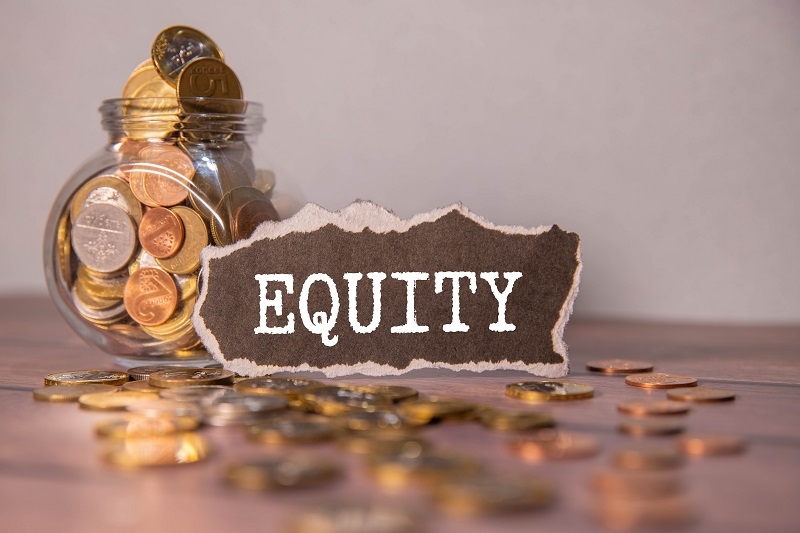
If you're new to the arena of investing, you've probably come upon the term “equity” greater than once. So, what is equity in investing, and why does it count a lot? One of the first steps toward becoming an informed and self-assured investor is comprehending the solution. Understanding the definition of equity in finance and how it fits into your investing strategy is essential, regardless of whether you're working with a retirement account or this is your first time examining the inventory marketplace. This guide will explain the many types of equity in investments, explain how equity functions in shares, and make equity easier for novices to understand.
Let’s begin with the basics: what is equity in investing?
In the only phrase, fairness represents ownership. If you very own fairness in a company, you very own a part of that commercial enterprise. It may be through inventory stocks, property, or a commercial enterprise partnership. In most investing contexts, equity refers to your stake in a publicly traded organization through shares of stock.
So, the definition of fairness in finance generally refers to the fee of a possession interest in an asset, after subtracting liabilities. Think of it like this: if an organization owns $1 million in belongings and owes $400,000 in liabilities, its equity is $600,000.
Equity is important because it reflects an investor’s stake in the corporation. The better your fairness, the extra you enjoy the organisation’s success—and its dangers. Equity gives you the capacity to earn income through capital appreciation (inventory price growth) and dividends (earnings sharing).
If you are investing in the stock market, knowledge of how fairness works in shares is vital.
When you buy a stock, you're buying equity in an organization. This makes you a shareholder—meaning you personal a bit of that company. The size of your ownership depends on what number of shares you own relative to the total number of outstanding shares.
For instance, if an agency has a million stocks and you own 10,000 stocks, you own 1% of the organization.
The definition of equity in finance extends past shares. It can observe diverse economic conditions and asset sorts:
This refers to the distinction between your private home's marketplace value and the closing mortgage balance. If your property is worth $300,000 and you owe $200,000, your home equity is $100,000.
In a small business, equity represents the proprietor’s interest in the employer after liabilities are paid. It’s regularly calculated as:
Equity = Assets – Liabilities
Private equity refers to investments in private businesses—those no longer publicly traded. These are typically made by venture capital companies or wealthy buyers looking to fund startups or restructure struggling corporations.
All those scenarios reflect the same central concept: fairness equals possession.
There isn’t just one kind of equity. Let’s explore the forms of fairness in investments you’re most likely to encounter:
This is the maximum famous form of fairness. Common shareholders normally have balloting rights and might acquire dividends. It also incorporates the very best risk in financial disaster, as common shareholders are last in line to be paid.
Preferred stockholders don’t generally have voting rights, but they have a better claim on property and earnings than common shareholders. This approach, they get paid dividends before common shareholders and have priority at the point of liquidation.
As noted earlier, this refers to fairness in non-public companies. Private fairness investments are usually illiquid and involve greater risk; however can provide high returns.
A kind of private fairness, task capital entails funding startups with high growth potential. In go back, buyers receive fairness stakes inside the organizations.
Equity can also talk over with your ownership stake in actual property residences. This is critical for homeowners who want to borrow against their home’s price or sell it for a profit.
Understanding the exceptional varieties of equity in investments helps you choose the right kind for your desires, risk tolerance, and timeline.

Here are some reasons why investors choose equity over other options like bonds or savings debts now that you know what equity in investing is.
Of course, there are dangers associated with equity investing as well:
Being privy to those dangers is crucial while know-how fairness for beginners.
If you are questioning how equity works in shares and a way to start investing, here is a simple step-with the aid of-step process:
Whether you are saving for retirement, constructing wealth, or simply curious approximately the stock market, knowing what equity is in making an investment offers you a strong basis. It’s one of the maximum crucial ideas in cutting-edge finance—and a powerful tool in your investing toolkit.
By grasping the definition of equity in finance, studying how fairness works in stocks, and familiarizing yourself with the types of fairness in investments, you are properly on your way to becoming a smart, assured investor. Stay patient, stay informed, and recollect: constructing wealth is a marathon, not a dash.
This content was created by AI